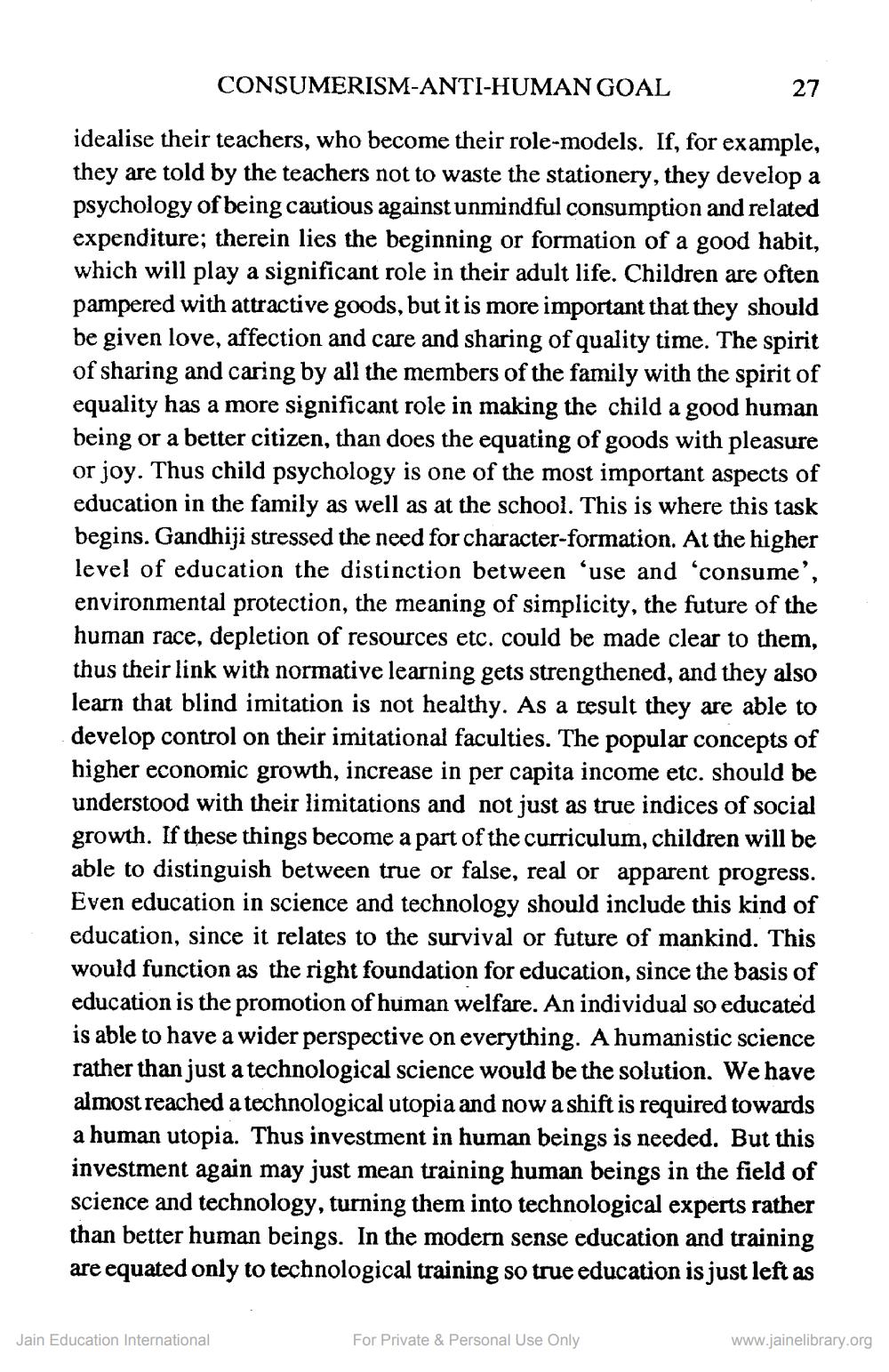________________
CONSUMERISM-ANTI-HUMAN GOAL
idealise their teachers, who become their role-models. If, for example, they are told by the teachers not to waste the stationery, they develop a psychology of being cautious against unmindful consumption and related expenditure; therein lies the beginning or formation of a good habit, which will play a significant role in their adult life. Children are often pampered with attractive goods, but it is more important that they should be given love, affection and care and sharing of quality time. The spirit of sharing and caring by all the members of the family with the spirit of equality has a more significant role in making the child a good human being or a better citizen, than does the equating of goods with pleasure or joy. Thus child psychology is one of the most important aspects of education in the family as well as at the school. This is where this task begins. Gandhiji stressed the need for character-formation. At the higher level of education the distinction between 'use and consume', environmental protection, the meaning of simplicity, the future of the human race, depletion of resources etc. could be made clear to them, thus their link with normative learning gets strengthened, and they also learn that blind imitation is not healthy. As a result they are able to develop control on their imitational faculties. The popular concepts of higher economic growth, increase in per capita income etc. should be understood with their limitations and not just as true indices of social growth. If these things become a part of the curriculum, children will be able to distinguish between true or false, real or apparent progress. Even education in science and technology should include this kind of education, since it relates to the survival or future of mankind. This would function as the right foundation for education, since the basis of education is the promotion of human welfare. An individual so educated is able to have a wider perspective on everything. A humanistic science rather than just a technological science would be the solution. We have almost reached a technological utopia and now a shift is required towards a human utopia. Thus investment in human beings is needed. But this investment again may just mean training human beings in the field of science and technology, turning them into technological experts rather than better human beings. In the modern sense education and training are equated only to technological training so true education is just left as
Jain Education International
For Private & Personal Use Only
www.jainelibrary.org




